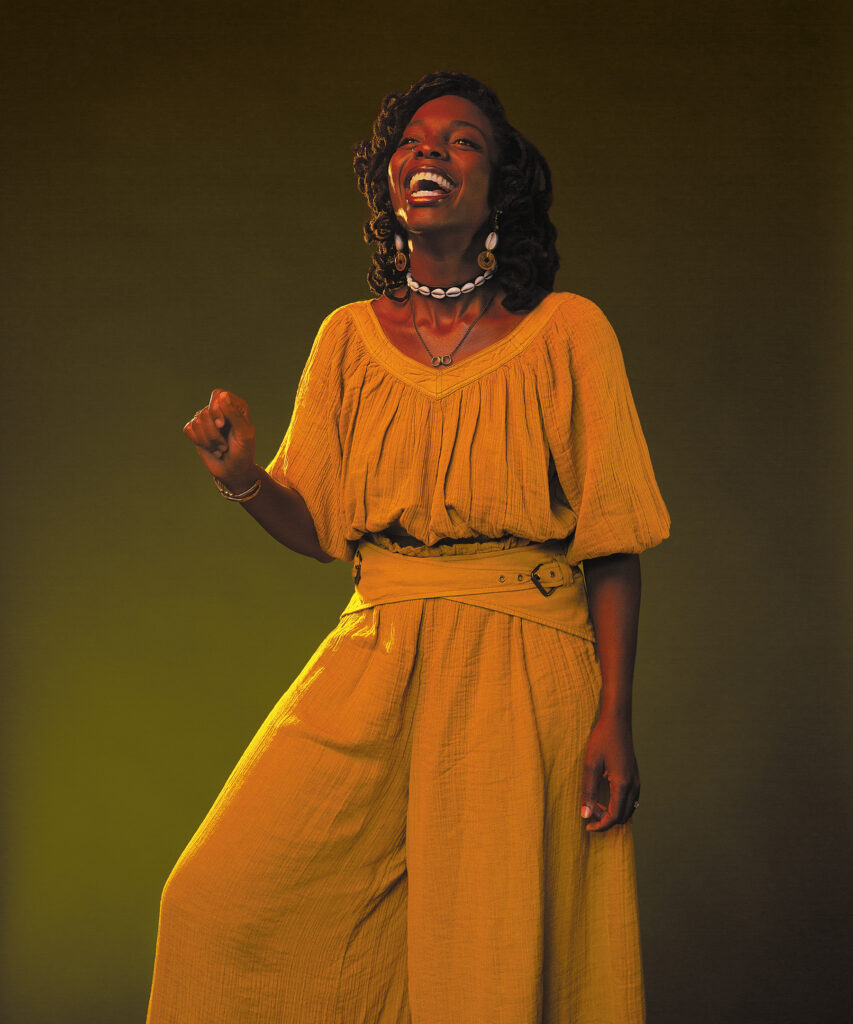Black Joy as an Act of Resistance

Erica Lasan (Photo: Robert Carter)
Erica Lasan
BS’09 (Metro)
Joy Strategist
By Kenna Caprio
Erica Lasan, BS’09 (Metro), deals in joy.
“Black women have been conditioned to live for other people. It’s the idea that in order to be a good woman, you have to be self-sacrificing. The biggest struggle is healing, letting go of generational trauma, ideals and ideas,” says Lasan.
“Joy isn’t a selfish act. Joy allows us to become selfless in a way that transforms the world. Small, intentional acts of kindness and love have the power to shift generations to come.”
After graduating during the Great Recession, Lasan struggled to find a job at first, before working at a marketing agency and in retail. She felt desperately unfulfilled, even lost, until she went into business for herself.
As Lasan transitioned away from the work she thought she should be doing — eschewing expectations and higher paychecks in favor of creativity and meaning — she realized, “I should just do things that make me feel good.” And she knew that other people needed a guide, or even permission, to do the same.
Now, as a joy strategist, she “works with women and entrepreneurs in transitional phases of life, helping them find joy, purpose and healing — and how to rediscover, reconnect and recommit to their identities.” Her work combines elements of life coaching and career coaching, with an emphasis on self-help, identity and joy.
Through workshops, one-on-one sessions and speaking engagements, Lasan propels clients through monthly accountability and wellness challenges, creating personalized roadmaps for motivation.
“Part of my mission is to help people understand the need for joy, and the ways to access joy in hard times,” she says.
Last year — as the COVID-19 pandemic raged and in the wake of Breonna Taylor’s death and George Floyd’s murder — Lasan felt crushed.
“I am a Black woman, with a Black husband and a Black son. Everything that happened, I felt it heavily. I felt it hard. There’s a constant ‘what if,’ that at any moment my son could go from being seen as cute to being seen as a threat.”
In moments of doubt, frustration, pain and anger, Lasan leans on the joy she finds in her work and in her family. Her joy doesn’t mitigate or erase the negatives in her life or in the world, but it does give her the tools to navigate difficult or impossible moments with grace and strength.
“Black people can only do so much. It’s not our job or responsibility to change racists or to teach people about racism. But we can, and should, share our personal experiences. Something that gives me hope is the solidarity of marginalized communities and the fact that young people understand that they can make change without permission. The more powerful, open-minded, resilient, joy-filled and purpose-led citizens in the world, the better,” she says.